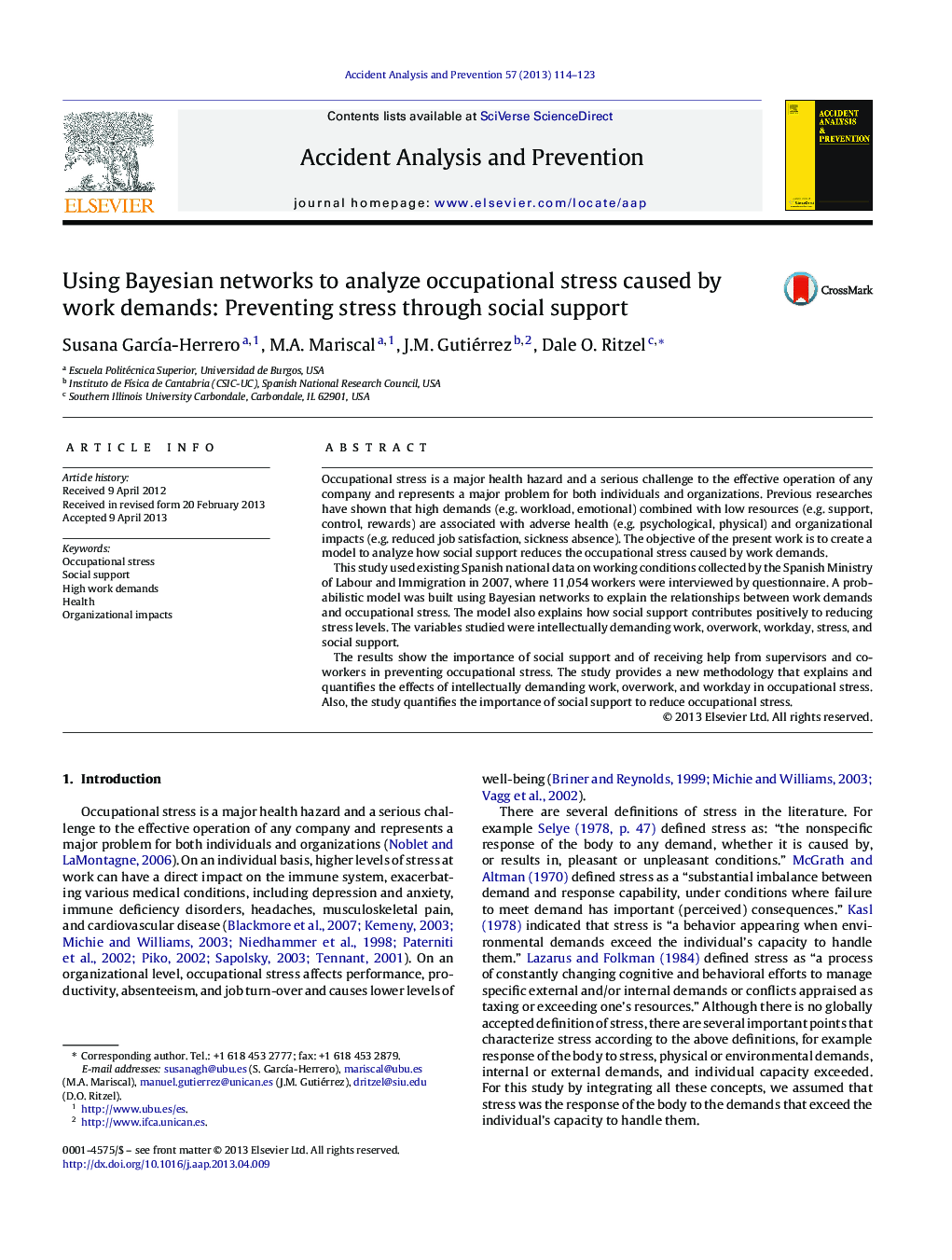| Article ID | Journal | Published Year | Pages | File Type |
|---|---|---|---|---|
| 572502 | Accident Analysis & Prevention | 2013 | 10 Pages |
•This study relations intellectually demanding work, overwork, workday, social support, and stress.•A Bayesian network model quantifies the effects of job demands and workday in occupational stress.•The study quantifies the importance of social support to reduce occupational stress.
Occupational stress is a major health hazard and a serious challenge to the effective operation of any company and represents a major problem for both individuals and organizations. Previous researches have shown that high demands (e.g. workload, emotional) combined with low resources (e.g. support, control, rewards) are associated with adverse health (e.g. psychological, physical) and organizational impacts (e.g. reduced job satisfaction, sickness absence). The objective of the present work is to create a model to analyze how social support reduces the occupational stress caused by work demands.This study used existing Spanish national data on working conditions collected by the Spanish Ministry of Labour and Immigration in 2007, where 11,054 workers were interviewed by questionnaire. A probabilistic model was built using Bayesian networks to explain the relationships between work demands and occupational stress. The model also explains how social support contributes positively to reducing stress levels. The variables studied were intellectually demanding work, overwork, workday, stress, and social support.The results show the importance of social support and of receiving help from supervisors and co-workers in preventing occupational stress. The study provides a new methodology that explains and quantifies the effects of intellectually demanding work, overwork, and workday in occupational stress. Also, the study quantifies the importance of social support to reduce occupational stress.
